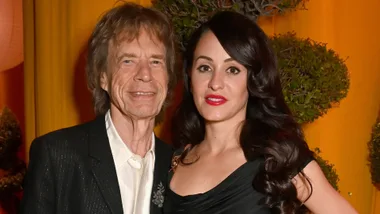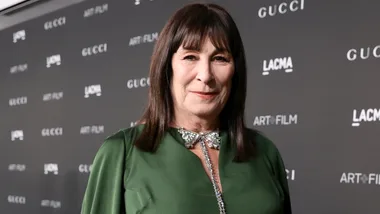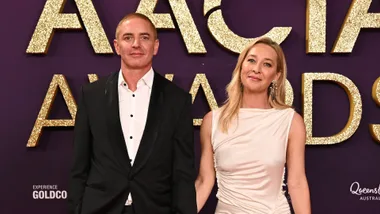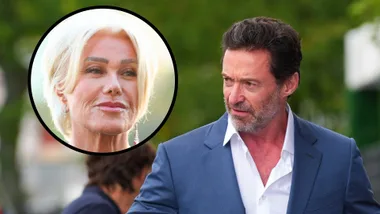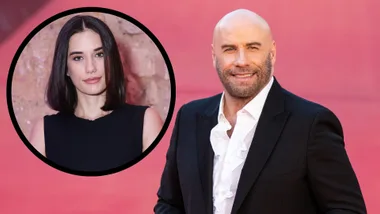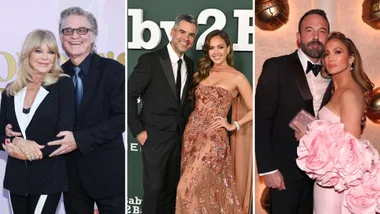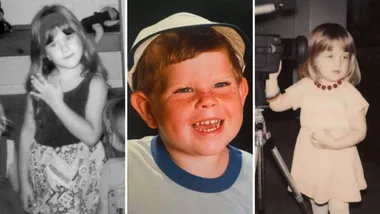About this book:
Egypt, 1977: Oliver, an English geophysicist expert in oil exploration, finds himself unwillingly swept up in a world of political and mystical sabotage after his wife, Isabella, a marine archaeologist, drowns while recovering a mysterious ancient astrolabe she’d been searching for all her life.
About the author:
Tobsha Learner was born and raised in England and has lived in both Australia and the USA. She is well-known in Australia as a playwright and her first collection of short stories‚ Quiver‚ has sold over 150‚000 copies internationally. She has also written Madonna Mars, the bestselling The Witch of Cologne, Tremble and Soul. Tobsha divides her time between London‚ Sydney and California. Visit Tobsha Learner at her website: www.tobshalearner.com
The Australian Women’s Weekly talks to Tobsha Learner about ‘The Sphinx’
What inspired you to write Sphinx?
I became interested in the Antikythera mechanism, a mysterious 1st century ancient bronze mechanism discovered off Rhodes it is 1st century, there is nothing as mechanically sophisticated for at least two thousand years after – it simply shouldn’t exist. So I started to think there must have been predecessors to the mechanism that might possibly have existed in the time of the Pharaohs, and I had written about a character moving out of traditional thinking into enlightenment in The Witch Of Cologne, and wanted to take a character through the reverse journey in Sphinx. Here we have a scientist – a geo-physicist working in the oil trade – thrown into the realm of Egyptian mysticism and belief through the ambition of his marine archaeologist wife-. I also love weaving myth, politics and history together to make emotionally epic stories.
Did you spend much time in Egypt doing research?
I spent two months interviewing and absorbing the atmosphere in Alexandria and Egypt before I started the draft but after I had most of the story-line mapped out.
Why did you choose to set Sphinx in the late 1970s?
I remembered being very upset when Sadat was assassinated and then later Begin. I become interested in Alexandria because of it’s extraordinary mixture of cultures, then it seemed natural to explore both how post-colonial Egypt was after Nasser’s socialist revolution and set the novel in the year that Sadat made his historical (and very brave) visit to the Israeli parliament in an overture to make peace between the two countries. This makes up the backdrop to the Egyptian sections in Sphinx. The sections in London in 1977 are very autobiographical. This was a world I knew well before immigrating to Australia. In fact as a teenager I squatted in a house with three of the characters that feature!
Other than telling a story what did you set out to achieve in the writing of this book?
In my historical fiction I always aspire to be both as gripping and entertaining as possible but also to educate. All of the historical details as well as the information about the oil industry were very well researched. I always involve specialists: both as interviewees and proofreaders. There is also a cheeky literary device not many readers will get – but the pharaoh involved in the story – the great magician pharaoh – Nectanebo 2nd, himself, has a tradition of being an literary muse – both within a century of his own death and later – for several medieval ballad writers. But ultimately, as a novelist, if I can transport my readers both emotionally and in their imaginations I’m happy.
In writing Sphinx, what was the biggest challenge?
With each new novel I try and push my craft further. And, in my case, that means a balancing act between poetic metaphor, visceral description and physical action. As a reader I like both great characterization and fast moving plots. The challenge is to balance the both and not compromise one for the other. Starting a new novel is a little like starting a new relationship – you have to be prepared to commit for at least three years and put up with the domestic tedium as well as the emotional highs!
Do you begin writing your books with a plot all worked out or do you come up with the characters and setting first?
I have both worked out before I actually find myself staring at a blank screen. My original training was both sculptor and later, screenwriter. Both skills inform my writing process. As a playwright/screenwriter I learnt to have character breakdowns as well as the synopsis of the plot worked out before beginning the draft. As a sculptor working in marble I learnt about the importance of polishing (i.e re-writing) and how many small visual details affect the whole. Having said that, research can influence the way a plot finally turns out: some quirky fact can send me onto a whole new exciting subplot! Nothing is fixed.
What’s been your proudest moment as an author?
Nothing definitive. I once got a fantastic American fan letter from a man who, in the first paragraph of his letter, told me how he had been completely absorbed by the world I’d created in The Witch Of Cologne, his second paragraph began…’As I write to you from this prison…’I was moved to tears. The fact that my work is accessible and seems to reach people across the whole spectrum of society means a lot to me. The other area of pride is probably in that I keep writing. The novelist is more a marathon runner than long-distance runner and the kind of courage it takes working in such isolation cannot be underestimated. I really respect my fellow writers on this front.
Tell us a bit about your life at the moment?
I divide my time between Sydney, London and Southern California (my partner works internationally). I’m a part-time stepmother, and am blessed to have a global eye on the world. The things that matter to me are human rights, environment and, as the daughter of a careerist, the on-going right to equal education and equal employment for women. I think living in the West we have started to take this comparatively recent won right for granted.
Tobsha is an unusual name?
I am named for my Polish great grandmother and am of mixed heritage.

